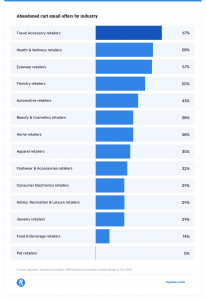During the 2008 recession, it was up in the air which businesses would make it out of the dire economic environment intact. It seemed obvious that savvy behemoths like Google or Apple would come out of the recession with their dignity and their profits remaining but for many the recession seemed like it could have been the end.
Yet many companies that had the odds stacked up against them survived and even thrived during the recession. In some cases, it was due to the product or service they were offering, personable customer service, the respect of their brand, or sheer luck. Businesses and everyday people survive financial crises in a variety of ways.
Here are five businesses that managed to survive the great recession, why, and how their company will fare in the near economic future.
Groupon
The recession caused a cutback for consumers who wished to buy goods, eat out, or try new activities. Then in the midst of it (November 2008,) came Groupon, a deal a day website which provided the service of great offers non-essential services.
The company, which sends out daily email discounts for local businesses, managed to quickly spread to over 35 countries and 300 markets in its first two years, creating a $ 500 million annual profit.
Groupon made a business of providing consumers access to all of the non-essential products they desire in a desperate time and made a profit. However, with the recession over and passing on a buyout from Google, Groupon is one of the recession survivors that have seen better days.
Wells Fargo
By keeping things simple while large lenders set out on corporate ventures during the Recession, Wells Fargo survived and even grew.
Wells Fargo’s businesses model focused on the selling of financial products in a branch atmosphere and to develop a diverse lending system that lends not only to real estate but also to small businesses, energy and agriculture, and those looking to pay off car loans.
While other banks were looking to increase their branch number in any way possible, Wells Fargo kept things to a minimum and only taking on Wachovia, which doubled its East Coast branches and helped Wells Fargo gain capital, allowing it to stay successful today and in the future
ETrade
The online brokerage firm suffered over three years of losses due to decisions that were made prior to the recession, hearkening back to the burst of the internet business bubble years earlier.
Citadel, a Chicago hedge fund group, purchased its mortgage portfolio in 2007, helping it survive before the 2008 financial meltdown. E*Trade then made management changes with a new CEO and a 1-for-10 reverse stock split, which allowed it to hold on for another day, allowing it to hang on through the recession.
While E*Trade still hasn’t completely regained the strength that they had from before the burst they seem to have “turnaround potential” as MSN Money reports due to selling off portfolios, taking cutbacks, and decision-making changes in management. Through their strong brand recognition, the value of their franchise, and a confident growth in their financial strength, E*Trade survived the recession.
Netflix
One of the most successful businesses during the recession came as a response to the dying but once profitable video rental store and the new video-on-demand services made available through Comcast or Apple.
In 2009, the peak of the recession, Netflix gained 3 million members. This was due to their new tv/movie streaming plan, which allowed subscribers to stream an unlimited amount of entertainment a month, along with their disc-delivery service.
By adding a variety of price plans and different services, Netflix became notable for what they did, their customer service, and eventually brand recognition. As of today, Netflix continue to grows with over 36 million subscribers.
Citigroup
Recently the Feds created a stress test deciding how banks would fare under a variety of circumstances including a depression; no bank really fared well on the stress test except Citigroup.
The Feds showed that Citigroup had a 8.9% growth in assets, making it one of the only banks on the list that has grown since the recession.
This is in part due to efforts made since the recession, the quality of their services, and the recognition that their “brand” has.
(755)
Report Post





